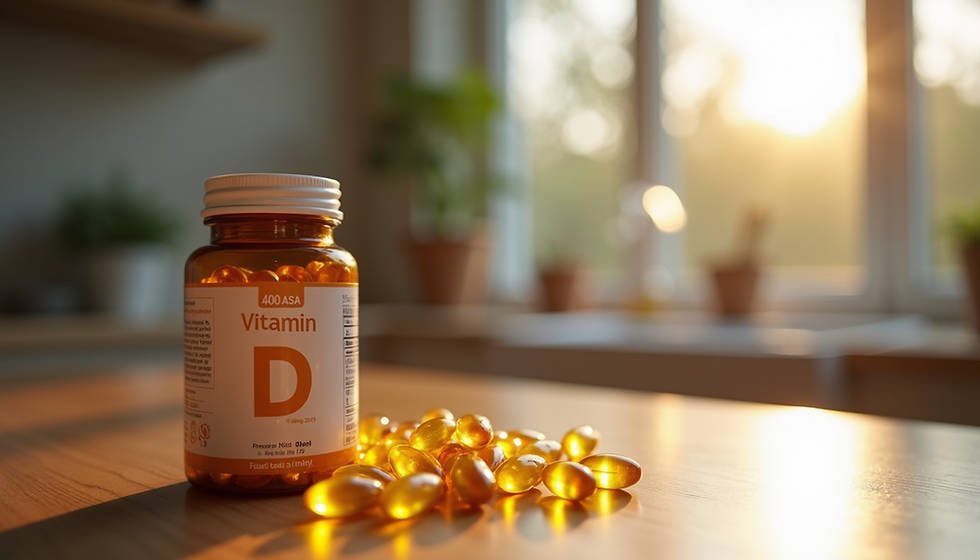What Makes Chocolate Our Go-To Snack for Brain Power and Bliss
- Kristina TOSEVSKA

- Aug 4, 2025
- 4 min read
Chocolate, that velvety, flavor-packed wonder, has a VIP pass straight to our hearts (and a permanent residency in our kitchens!). Seriously, finding someone who doesn't like at least one kind of chocolate is like finding a unicorn. Whether you're into the silky smoothness of milk chocolate, the deep, mysterious allure of dark chocolate, or the sugary crunch of white chocolate, there's something for everyone. But have you ever stopped mid-bite and thought, "Why am I so obsessed with this deliciousness?" What do we actually know about the chocolate we gobble down, and why does it seem to give our brains a little happy dance?
Chocolate isn't just a sweet treat; it's basically a superhero in disguise, backed by science. Ever notice how people nibble on chocolate before diving into a challenging task? There's a solid reason for this tasty ritual. It all boils down to biochemistry, with chocolate packing a punch thanks to compounds like theobromine and caffeine. These little wonders give chocolate its energizing superpowers, making it the go-to snack for a brain boost.
The Chemistry of Chocolate
At the core of chocolate’s energizing qualities are two important components: theobromine and caffeine. Each has a unique role in the body.
Theobromine, more abundant in chocolate than caffeine, offers a calming, mood-boosting effect. This compound enhances alertness without the jitteriness typically linked to caffeine. For example, studies have shown that consuming just 40 grams of dark chocolate pre-study can increase focus without overwhelming the senses.
Caffeine, a well-known stimulant, enhances mood and mental clarity. It works by blocking adenosine receptors in the brain, which can reduce feelings of fatigue. Thus, when theobromine and caffeine combine in chocolate, they create a balance that potentially boosts both happiness and cognitive ability.
Chocolate and the Brain
Beyond the stimulating effects of theobromine and caffeine, chocolate is rich in flavonoids, powerful antioxidants associated with improved brain function. Research indicates that these compounds can increase blood flow to the brain, resulting in enhanced memory and cognitive performance.
For instance, a study reported in the journal Frontiers in Nutrition found that participants consuming a beverage high in flavonoids saw a 15% improvement in cognitive tasks compared to those who didn’t. This suggests that indulging in chocolate not only delights your taste buds but also may help you navigate that demanding project or study session with greater ease!

The Health Benefits of Chocolate
Not all chocolate is made the same, and the health benefits vary significantly based on the type consumed. Dark chocolate, with its higher cocoa content and lower sugar levels, is filled with beneficial compounds.
Here are some notable health benefits linked to dark chocolate:
Improved Heart Health: Consumer studies indicate that moderate dark chocolate intake can lower blood pressure by about 5-6 mm Hg. This simple addition might reduce risks associated with heart disease.
Enhanced Mood: Chocolate consumption triggers endorphin and serotonin production, which can elevate mood. A small square can help brighten your day.
Brain Health: As highlighted earlier, the flavonoids in dark chocolate contribute to cognitive benefits. Frequent consumers may exhibit better long-term mental functioning.
In essence, enjoying a piece or two of high-quality dark chocolate could provide a range of benefits that extend far beyond mere satisfaction.
Choosing the Right Chocolate
With countless options available, how can you select the best chocolate? Here are some tips to guide your choices:
Go for Dark Chocolate: Aim for chocolate containing at least 70% cocoa solids. Higher cocoa content means more flavonoids and theobromine, amplifying health benefits.
Inspect the Ingredients: Quality chocolate should contain cocoa solids, cocoa butter, and sugar as primary ingredients. Steer clear of products with artificial additives or excessive sugars.
Moderation Matters: While chocolate has health benefits, enjoy it in moderation. A couple of squares a day can satisfy your sweet cravings without excess.
Watch the Calories: Dark chocolate can be calorie-dense, so keep portion sizes in check. Pairing it with nuts or fruit can create a balanced, satisfying snack.
Fun Facts About Chocolate
Chocolate was once currency: For ancient civilizations like the Aztecs and Mayans, cocoa beans held such value that they functioned as a form of money.
Over 300 varieties of chocolate exist: From white chocolate to ruby chocolate, there are endless flavor possibilities for chocolate enthusiasts.
Skin benefits: Antioxidants in cocoa can improve skin when applied topically, promoting hydration and enhancing blood flow.
The Sweet Takeaway
So, next time you reach for that chocolate bar before a study session or a challenging task, remember the science behind it. Chocolate isn't just a delightful treat; it’s a fantastic way to enhance your brain power and uplift your mood. Embrace the rich flavors of dark chocolate, appreciate the benefits it offers, and enjoy every bite guilt-free!
With its enjoyable taste and benefits supported by research, chocolate truly makes for our go-to snack for brain power and happiness. Let’s cherish this beloved treat and savor the joy and cognitive perks it brings to our daily experiences!



Comments